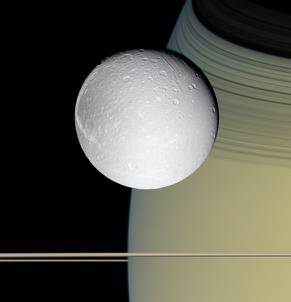Responding to Bruce
 Bruce Sterling did me the honor of devoting an entire Beyond the Beyond blog post to my Twelve Things... item from a couple of days ago. He provided an additional service by disagreeing with part of my post, and explaining precisely why. I figured I should pay close attention.
Bruce Sterling did me the honor of devoting an entire Beyond the Beyond blog post to my Twelve Things... item from a couple of days ago. He provided an additional service by disagreeing with part of my post, and explaining precisely why. I figured I should pay close attention.
Bruce, while stating that the "draft of a list of twelve principles here is pretty good," grabs onto the apparent contradiction between my point #1 ("Nobody can predict the future") and my point #2 ("Not everyone is surprised by surprises"). If someone has successfully identified an upcoming change before it happens, haven't they predicted the future? He writes:
((((If I frame an obvious truism as a "prediction" and you feel any genuine surprise, then prediction, as a social act, has taken place. I'm like an Egyptian priest with some elementary understanding of astronomy, who can and will win awestruck admiration when he foretells an eclipse. If somebody foretells that the sun will go dark and nobody else expects the sun goes dark, that is a major revelation. That's not a measure of the absolute unlikelihood of the predicted event. It's a measure of the social distance between specialized insight and general incredulity.)))
(((It makes no pragmatic difference how the predictor found these astounding things out. Frankly, nobody much wants to know that. Generally a futurist spots future trends by spending a lot of time closeted with obscure geeks. He does some groundwork and he scrapes up some poorly distributed future. That's not second-sight. It's kind of a lot of work, and for most people it's rather boring. The whole point of hanging out with futurists is that they will do that kind of thing for you. They can also generally talk about it in some persuasive, jazzy way that eases your native incredulity.)))
Bruce is largely correct, of course, and his point here about "the social distance between specialized insight and general incredulity" is worth emphasizing. Futurists are, in some ways, a different species; for better and for worse, most people don't think in the same ways or about the same things that futurists do. But remember that what I wrote wasn't a Field Guide to Futurism (although, now that I mention it...), it was a set of reminders for journalists approaching futurists for the purposes of reportage. The purpose of point #1 derives from the very same social distance between specialized insight and general incredulity that Bruce describes.
When journalists report on people who describe themselves as futurists, they may not understand why a futurist would make a given observation; what we often get as a result are assertions of certainty. I doubt there are many professional foresight workers out there claiming perfect predictive knowledge, so I have to assume that this comes from how some journalists perceive futurists operate. Point #1 was meant to inoculate reporters against such beliefs.
The kind of reportage prompting point #1 is most visible in the generally superficial articles about emerging trends and upcoming technologies. But as I say later on, Gadgets are not Futurism. Bruce reminds me that the more important kinds of foresight work is heavily science-based, and can make accurate predictions of future events based on existing research. We shouldn't treat a climate scientist (as a pointed example) with the kind of jaded skepticism that we might have for a pop culture trend guru.
So here's how a reworked point #1 should look, taking into account this diversity:
1. "Prediction is very hard, especially when it's about the future." -- Yogi Berra Completely accurate foresight is a rare thing; most of the time, good futurism means getting key elements right, even if the superficial details are wrong. Predictions based on physical principles and scientific knowledge tend to do better than those based on "trendspotting" and "cool hunting," and are more likely to be corroborated by other specialists. In every case, however, the most important question to ask is "why?" Why would the suggested change happen? Why would people make the predicted choice? Why would we see this particular outcome?
What do you think?
(BTW, the picture of Saturn and Encedalus at the top of the post is a call back to Bruce's own Saturn/Encedalus post earlier today.)






Comments
Hello, folks may be interested in a discussion of this topic in various places at the Hawaii Research Center for Futures Studies website: futures.hawaii.edu.
It seems to me that 'prediction' comes with a set of assumptions from mechanistic science (a science of certainty and completeness) and should be repeatedly problematized, especially when discussing futures studies in the popular press. Now, after it has been critiqued and de-stabilized as a concept, we can begin to re-introduce a limited form of 'acceptible' predictive frameworks--as in global warming.
For more, see the post "prediction will eat itself" by Stuart Candy, Manoa futures student and current curator of the Long Now Foundation's Long Bets program.
Also see Jim Dator's work. He, in fact, makes this his first law of futures:
"The future cannot be predicted, because the future does not exist."
Big fan of your work, Jamais.
Aloha, Jake.
Posted by: Jake Dunagan | June 29, 2006 9:57 PM